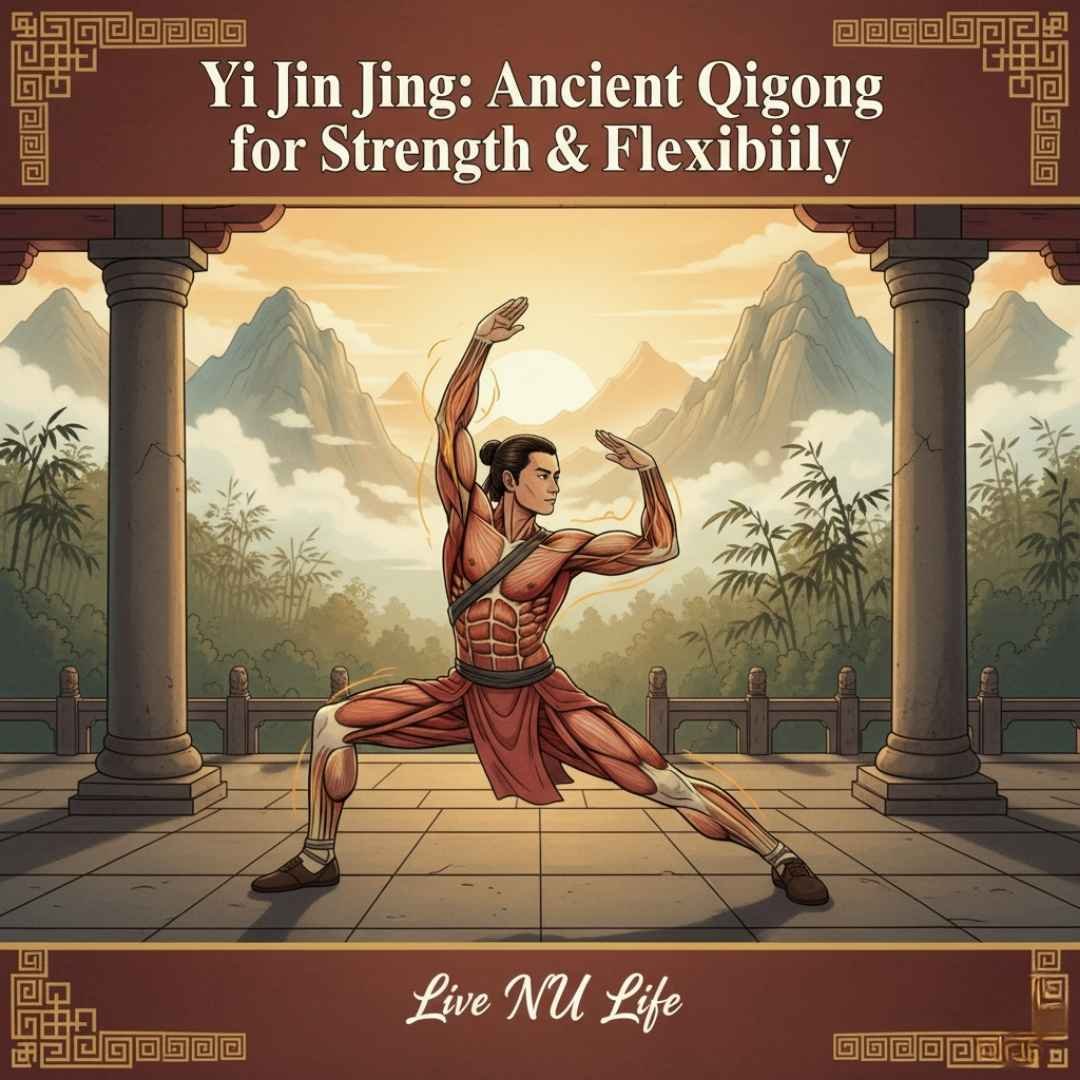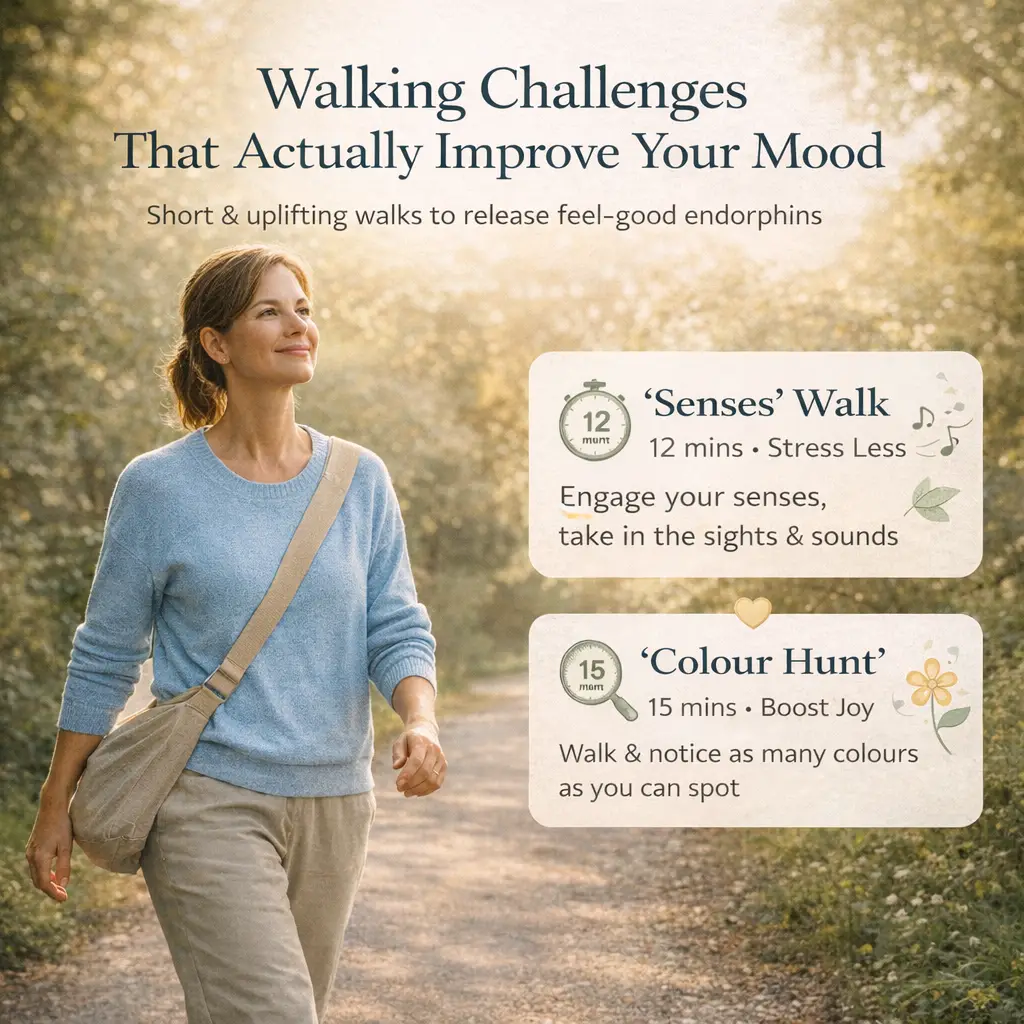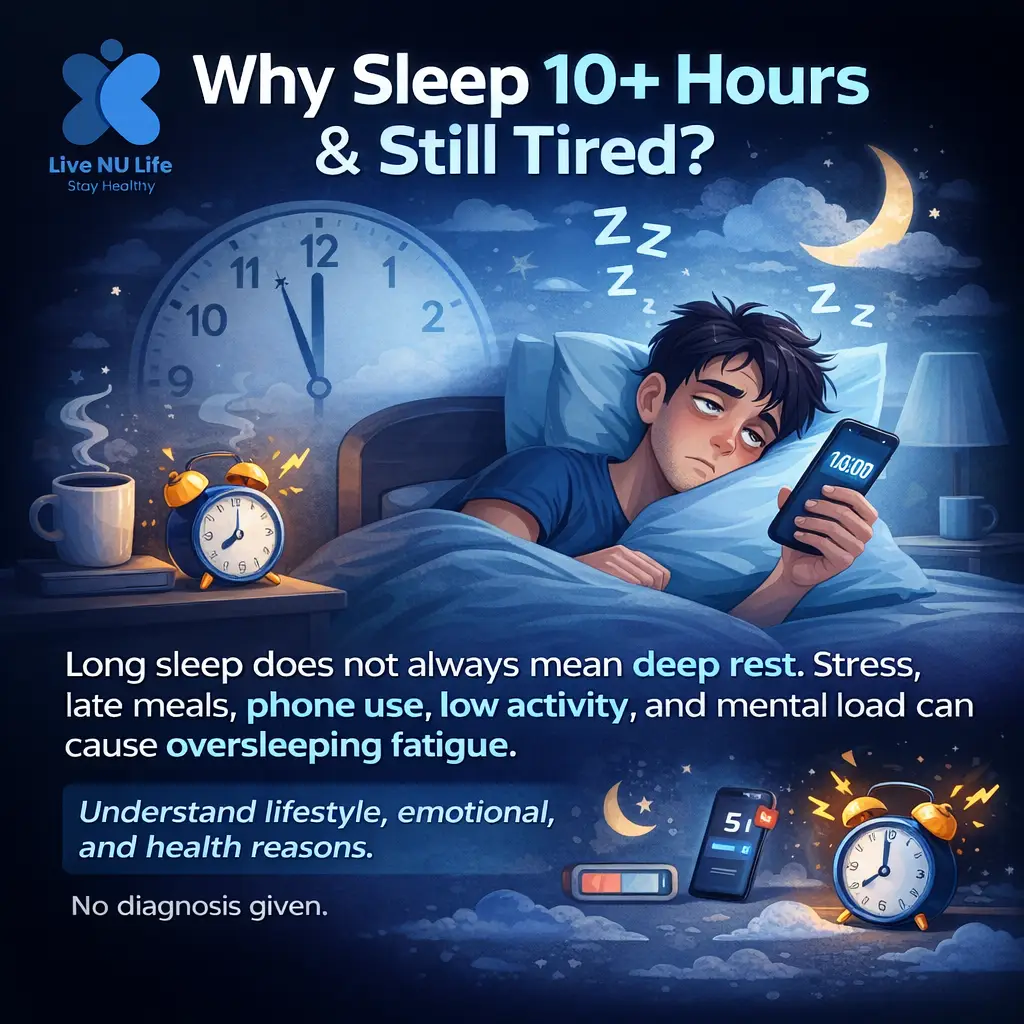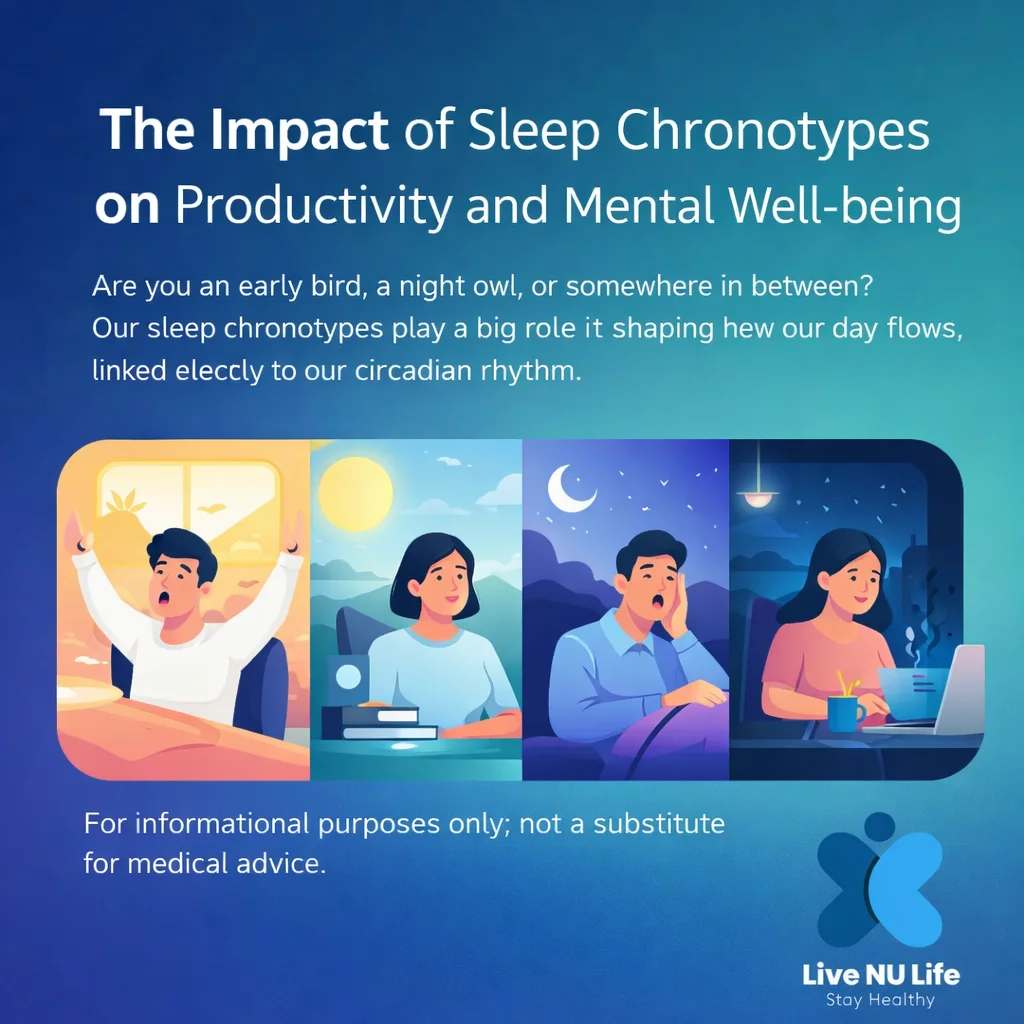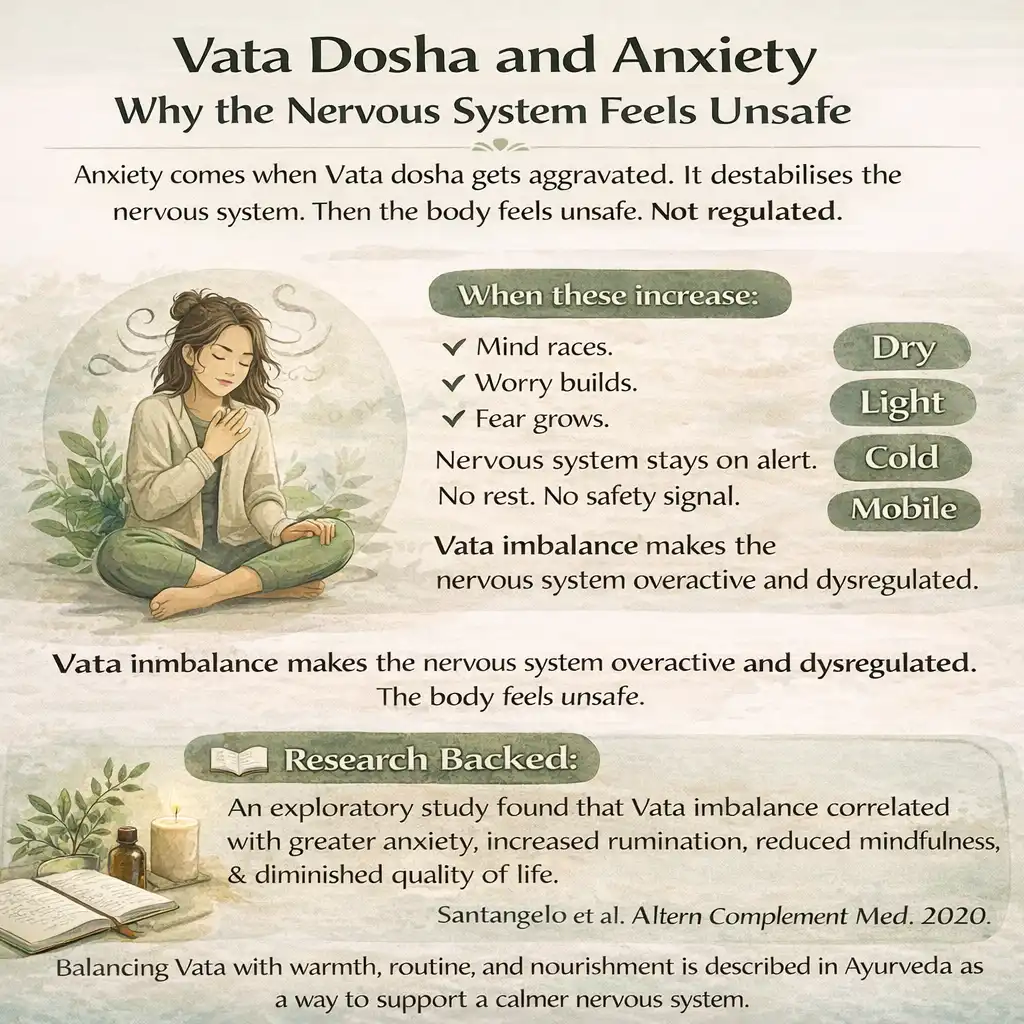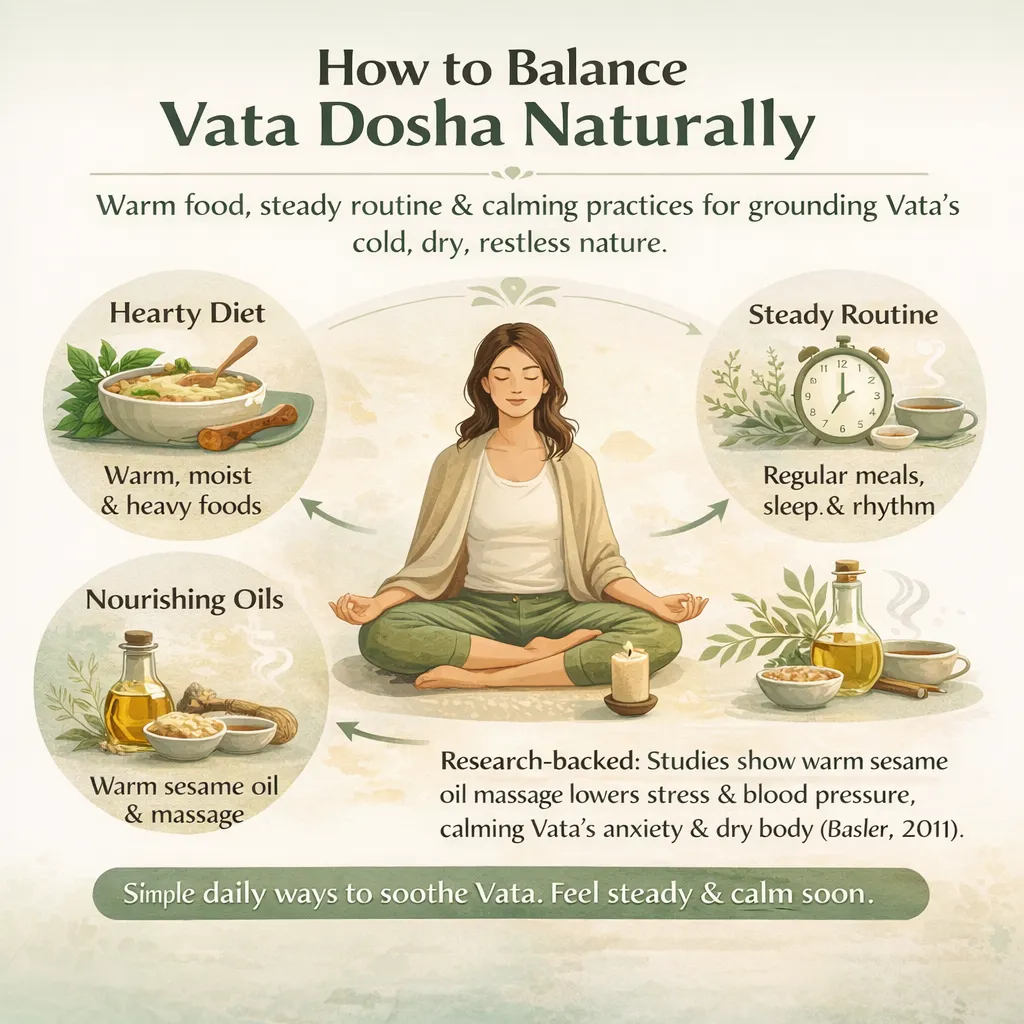Table of Contents
ToggleYi Jin Jing – Ancient Energy Exercises to Strengthen Body and Mind
Yi Jin Jing sounds like a tough name, but the meaning is simple. It is an old set of body exercises from China. The words mean “muscle and tendon change.” Long ago, monks used these moves to make the body strong and the mind calm. They believed it gave both energy and health.
It is not just about moving hands and legs. It is slow, steady, and full of breathing. Each move is done with focus. The body feels stretched, the chest opens, and the breath goes deeper. It is like giving your body and mind new life.
People say Yi Jin Jing helps with
- stiff joints
- weak muscles
- stress and tiredness
Anyone can try it. You do not need special clothes or tools. Just some space to stand and a little time daily. Start small, even 10 minutes. Then slowly increase.
This practice is more than exercise. It is a way to respect the body and calm the mind. It has lived for centuries because it works gently, yet deeply. Try it once, and feel how the body listens.
What Is Yi Jin Jing and Why Is It Special?
This is an old Chinese exercise. It combines slow body moves, deep breathing, and calm focus. People say it is not only for strength but also for peace of mind.
Why Is Yi Jin Jing Special?
Easy to Learn
The moves are slow. Even elders or weak bodies can do it. No hard training, no rush.
Good for Health
Makes the body flexible
Helps blood flow better
Reduces joint pain
Gives energy in daily life
Strong Mind and Calm Heart
It is not only for muscles. When you breathe slowly, the mind rests. Stress goes down.
Old but Still Alive
It was created hundreds of years ago by monks. Still today, people practice it. That shows its value.
Balance of Body and Spirit
It teaches you to connect your body with breath. When body and breath move in harmony, you feel light within.
It is simple. It is safe. And it is for everyone. If you want health with peace, It can be your friend.
Discover the strength and flexibility secrets in Yijin Jing.
How Does Yi Jin Jing Benefit Health?
Yi Jin Jing is an old Chinese practice. It looks simple. Slow moves. Deep breathing. But the effect goes inside the body.
Stronger Muscles and Joints
Its stretches the body. Hands, legs, and back all move together.
- Muscles get flexible.
- Joints feel light, not stiff.
- Even old people can try slowly.
Better Blood Flow
Movements are gentle, not heavy. Blood starts moving freely in the body.
- Heart feels relaxed.
- Tiredness comes down.
- Skin also looks fresh.
Calm Mind
Breathing with movement gives peace. Mind becomes still.
- Less stress in daily life.
- Sleep comes easily at night.
- Anger goes down, patience comes up.
Energy and Balance
It is not just body exercise. It gives energy.
- You feel active in the morning.
- Balance improves, falling chances reduce.
It is slow, but strong inside. It helps the body, mind, and daily life. Anyone can start small. Health grows step by step.
Who Can Practice Yi Jin Jing?
This is an old Chinese practice. It is about slow moves, deep breath, and gentle focus. Anyone who tries it feels lighter, more calm. But people often ask, who can really do Yi Jin Jing?
For Young People
Young bodies have energy. But stress, phones, and late nights make them tired inside. Its helps them sit still, move slowly, and breathe. Even 15 minutes daily can clear the head.
For Middle Age
Work, family, money worries—life feels heavy. It is a safe exercise without strain. It keeps joints soft, back strong, and heart steady. Many say they sleep better after practice.
For Old Age
Elders may fear exercise. But it is gentle. No jumping, no running. Just simple standing moves. It helps balance, reduces stiffness, and gives peace of mind.
For People With Health Issues
Not only can strong people do it. Even those with pain, stress, or weak energy can start slow. Doctors in China even suggest Yi Jin Jing for recovery.
This is for everyone—young, busy, or old. No need for big space, no need for costly tools. Just your body, your breath, your will. Try once, feel once. Then decide.
Core Principles of Yi Jin Jing Practice
It is an old Chinese practice. It mixes slow body moves with calm breath. People use it to build strength inside and outside. You don’t need a gym, only some space and time.
- Body and Breath Together
Movements are slow. Breath is deep. When both move in one rhythm, the body feels light. Example: stretch arms up, breathe in, then slowly breathe out as you bring them down.
- Strong Muscles, Soft Heart
Its makes muscles strong, but also keeps the heart soft. You learn to balance. Body feels firm, mind feels calm.
- Flow, Not Force
It is not about pushing hard. It is about flow. Like water running in a river. Simple moves, repeated daily, bring more energy.
- Mind Stays Here
When you move, you focus only on that move. No phone, no worry. Just you and your breath. Slowly, stress melts.
- Healing from Inside
Many people say that pain in joints, back, or shoulders reduces. It is gentle, so even older people can try.
It is simple, but deep. Start small. Feel your breath. Feel your body. Practice daily, and you will see change—inside and outside.
Discover the power and benefits of Baduanjin, a key practice in Traditional Chinese Fitness Techniques.
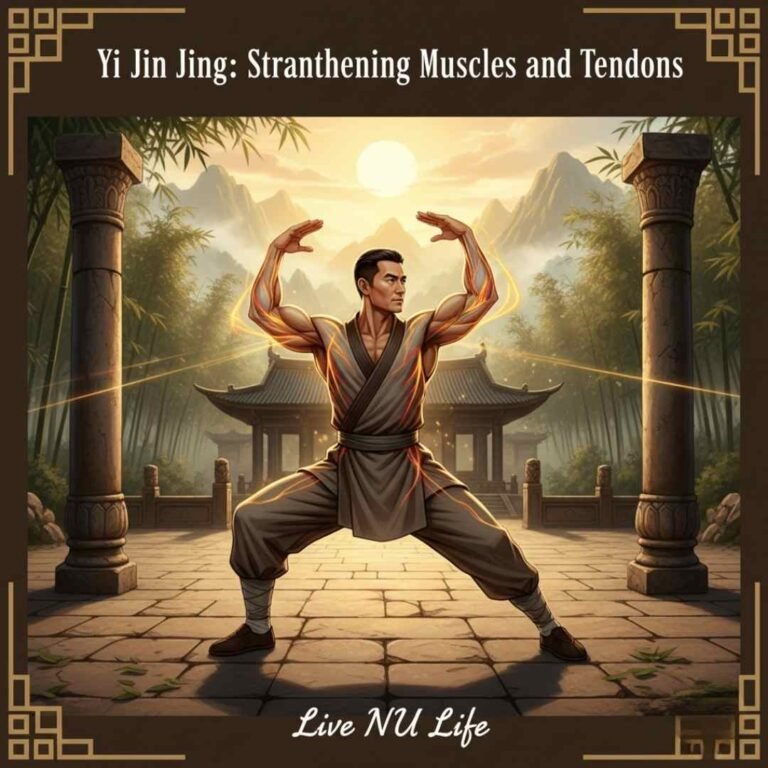
Step-by-Step Beginner Yi Jin Jing Routine
It is not hard. It is soft, slow, and deep. Anyone can do it, young or old. It makes the body light and the mind calm.
Start simple. No rush. Just breathe and move.
- Stand tall
Feet on the ground. Shoulder wide. Knees soft. Breathe in and out slowly. - Lift the arms
Raise both hands. Stretch like touching the sky. Stay. Then drop your arms down. - Open the chest
Hands on side. Push arms out. Feel chest wide. Breathe deep. - Twist gently
Turn your waist right. Then left. Arms swing free. Do not force. - Bend forward
Hands touch knees or toes. Head down. Relax back. Then rise slowly. - Hold still
Stand again. Hands on belly. Close eyes. Feel breath inside.
Do each step 3–5 times. Do not hurry. Feel the body. Smile small.
It is not about show. It is about feeling your body alive. Even 10 minutes daily makes a change.
Start today, go slow, and keep your heart open. Yi Jin Jing is for you.
Common Mistakes to Avoid When Practicing Yi Jin Jing
Yi Jin Jing looks calm from the outside. But inside, it touches the breath, muscles, and even mood. Small mistakes in practice can spoil it. And sometimes, they even bring pain instead of peace. Let’s keep it simple and straight.
- Rushing the Moves
It is not a race. Slow hands, slow breath, slow mind. If the body goes fast, breath breaks, mind jumps. Then the whole meaning goes away. - Holding Breath
Some people stop breathing while moving. Breath is the life of it. Without breath, it becomes just exercise. Inhale soft, exhale soft. Like air touching skin. - Forcing the Body
Stretching too hard hurts muscles. This is gentle. It opens the body like water on dry soil. No push, no pain. - Ignoring Posture
Bent back, stiff shoulders, or tight jaw – all block flow. Small check helps: Spine tall, Shoulders light, Face relaxed.
- Practicing Without Mind
This is not only the body. It is a body with a mind. Moving hands with wandering thoughts is like an empty shell. Feel each move. Be there.
Its works when body, breath, and mind walk together. Practice simple. Avoid these small mistakes. Then it becomes soft, healing, and close to the heart.
Integrating Yi Jin Jing into Your Daily Life
Body feel stiff? Mind feels heavy? It can help.
It’s an old Chinese exercise. Slow moves. Deep breath. Calm mind.
Not hard to learn. Not heavy for the body. Anyone can try it.
Why Yi Jin Jing Helps
- Joints feel free.
- Back and legs get light.
- Breath becomes calm.
- Mind feels clear.
It’s not a gym. It’s gentle. You move, you breathe, you focus.
How to Start Small
- Morning – stand near a window. Do 5 minutes of Yi Jin Jing.
- Lunch break – one or two moves. Stretch arms, turn waist.
- Evening – breathe slowly, relax your shoulders, try the short practice again.
Even a little time works. Not about long hours. Just a simple habit.
Daily Life Connection
It fits anywhere.
- Waiting for tea? Stretch arms.
- Feeling tired at work? Do one move sitting.
- Before sleep? Breathe slowly, let your body cool down.
This is not only about health. It gives peace. Small steps. Small moves. But deep effect.
Try once today. Feel the change tomorrow.
Tips for Staying Consistent with Yi Jin Jing
Practicing Yi Jin Jing can change how your body feels. But many stop after a few days. Consistency matters. Even small daily practice helps. You don’t need long hours.
- Start Small
- Do 5–10 minutes first.
- Focus on movements, not speed.
- Slowly increase the time when it feels easy.
- Fix a Time
- Morning is best for fresh energy.
- Evening works if mornings are busy.
- Make it a habit, like brushing teeth.
- Keep It Visible
- Place a mat in your room.
- See it, remember it, and you will do it.
- Even a note on the wall can help.
- Join a Group or Friend
- Practicing with someone keeps you motivated.
- Share progress and laugh together.
- It makes it more fun.
- Celebrate Small Wins
- Notice how your body feels lighter.
- Feel more relaxed after every session.
- Reward yourself, even with a smile.
It grows stronger with daily effort. Don’t rush, don’t compare. Feel each move and enjoy. Little steps every day make a big difference.
How Yi Jin Jing Compares with Other Mind-Body Practices
Many people do yoga, meditation, or Tai Chi to feel calm and healthy. Yi Jin Jing is another practice that helps the body and mind. But it works a little differently and can be simpler for daily life.
Gentle on Body, Strong on Energy
- Its focuses on stretching muscles and tendons slowly.
- Yoga sometimes needs balance and flexibility first.
- Tai Chi is smooth, but it can take a long time to learn moves.
- With Its, anyone can start without worry.
Easy to Learn and Remember
- Moves are short and clear.
- You don’t need a teacher all the time.
- Other practices may need hours of learning each posture.
Mind and Body Together
- Its links breathing with movement naturally.
- Meditation focuses only on the mind.
- Tai Chi links mind and movement, too, but the steps are longer and slower.
- Its gives both a calm mind and an active body in simple steps.
Can Fit in Daily Life
- You can do Yi Jin Jing at home, in a small space.
- No extra equipment is needed.
- Yoga or gym sometimes needs mats, props, or studios.
Its may feel easier and more natural for many. It does not rush the body. It calms the mind. It helps you slowly feel stronger, more flexible, and peaceful.
Discover more about Traditional Chinese Fitness Techniques and their benefits through Tai Chi and Qigong, & Wuqinxi.
Frequently Asked Questions
- It is a process of gentle movements and stretches.
- Focuses on muscles, tendons, and joints.
- Helps blood flow and energy in the body.
- Any age, young or old.
- People with joint stiffness or low energy.
- No special fitness level needed.
- 15–30 minutes daily is good.
- It can be done even 2-3 weeks.
- Never skip it completely, but perform small steps every day.
- More energy and less body pain.
- Better posture and flexibility.
- Mind feels calm and less stressed.
- Beginners may follow videos or apps.
- A teacher can correct mistakes and guide safely.
- Move slowly, don’t force your body.
- Stop if you experience any pain while doing.
- Drink water and rest if tired.

